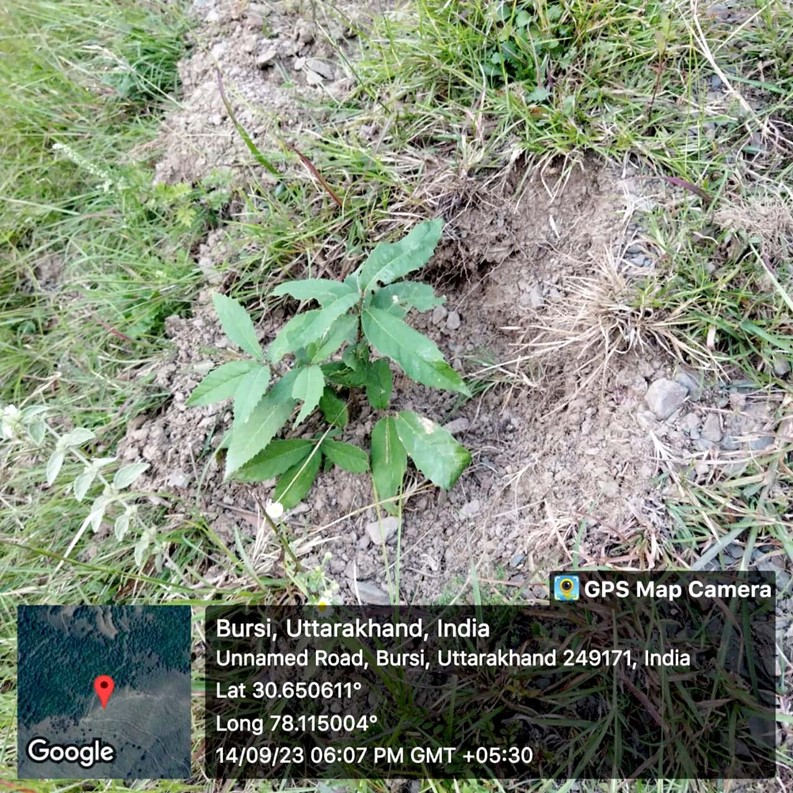
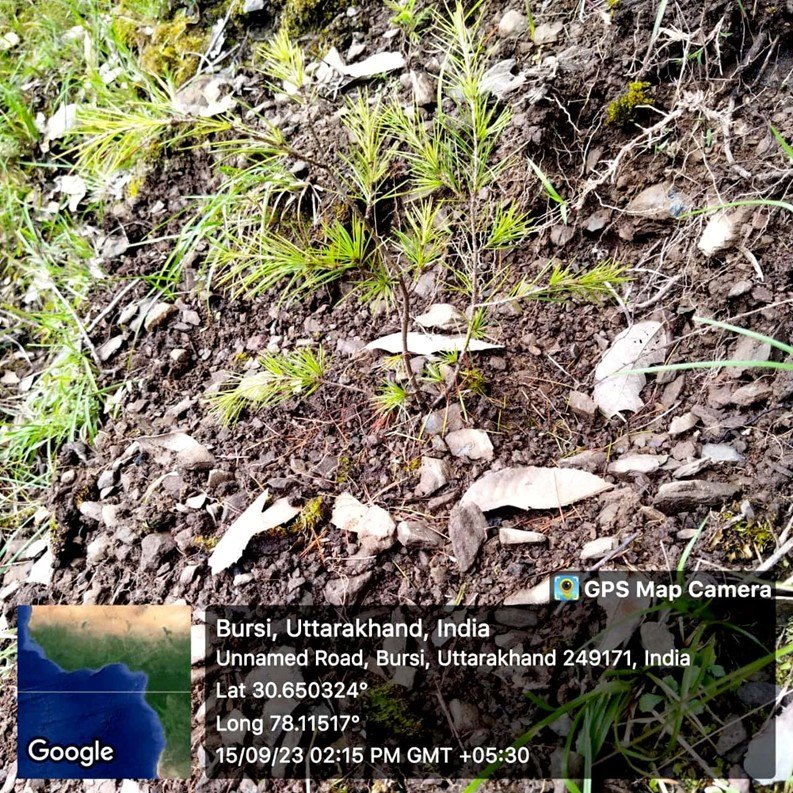
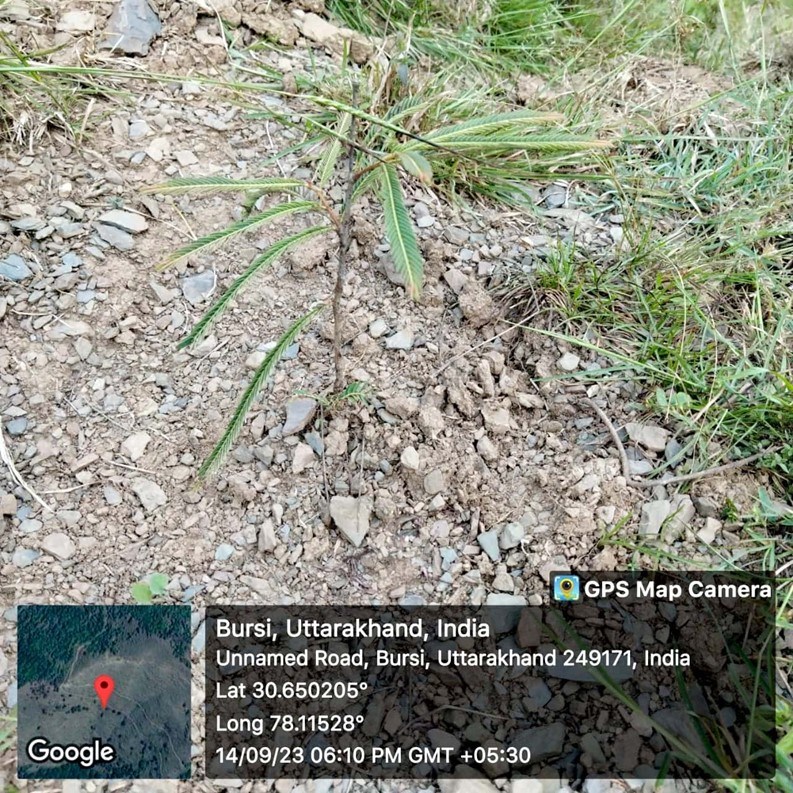
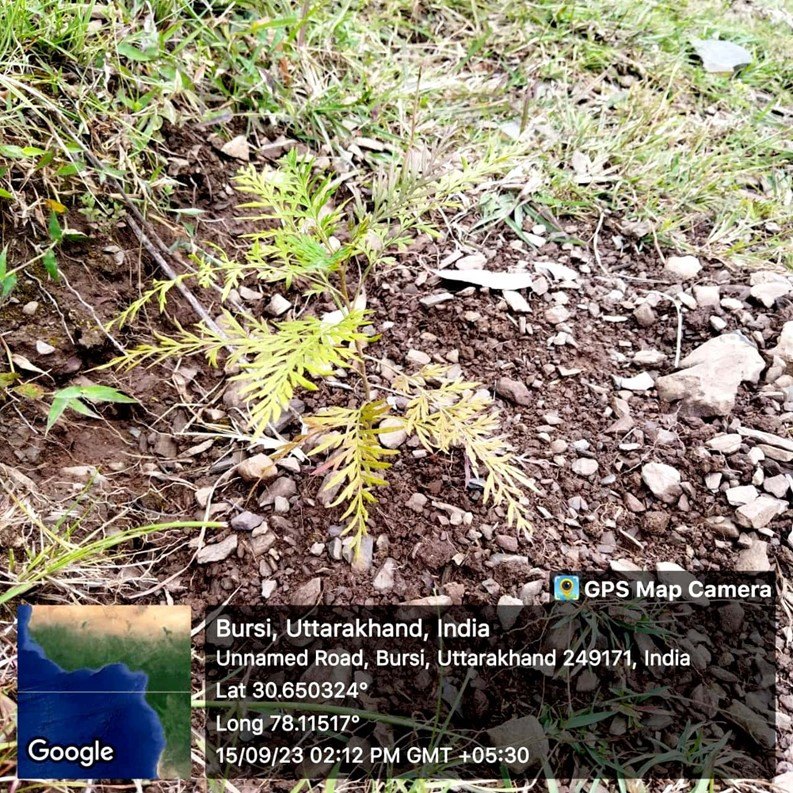
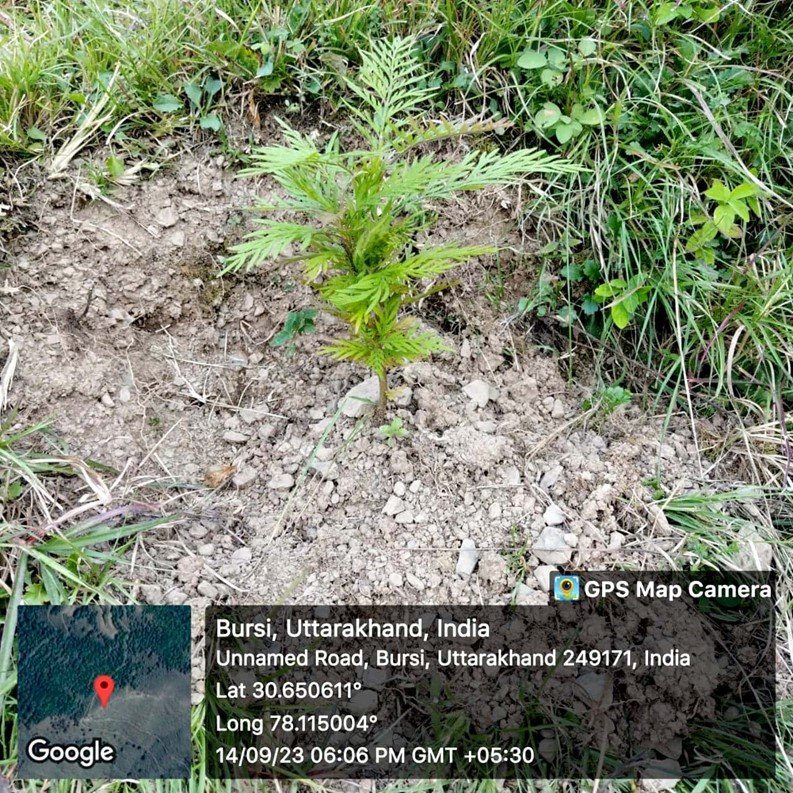
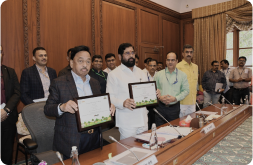
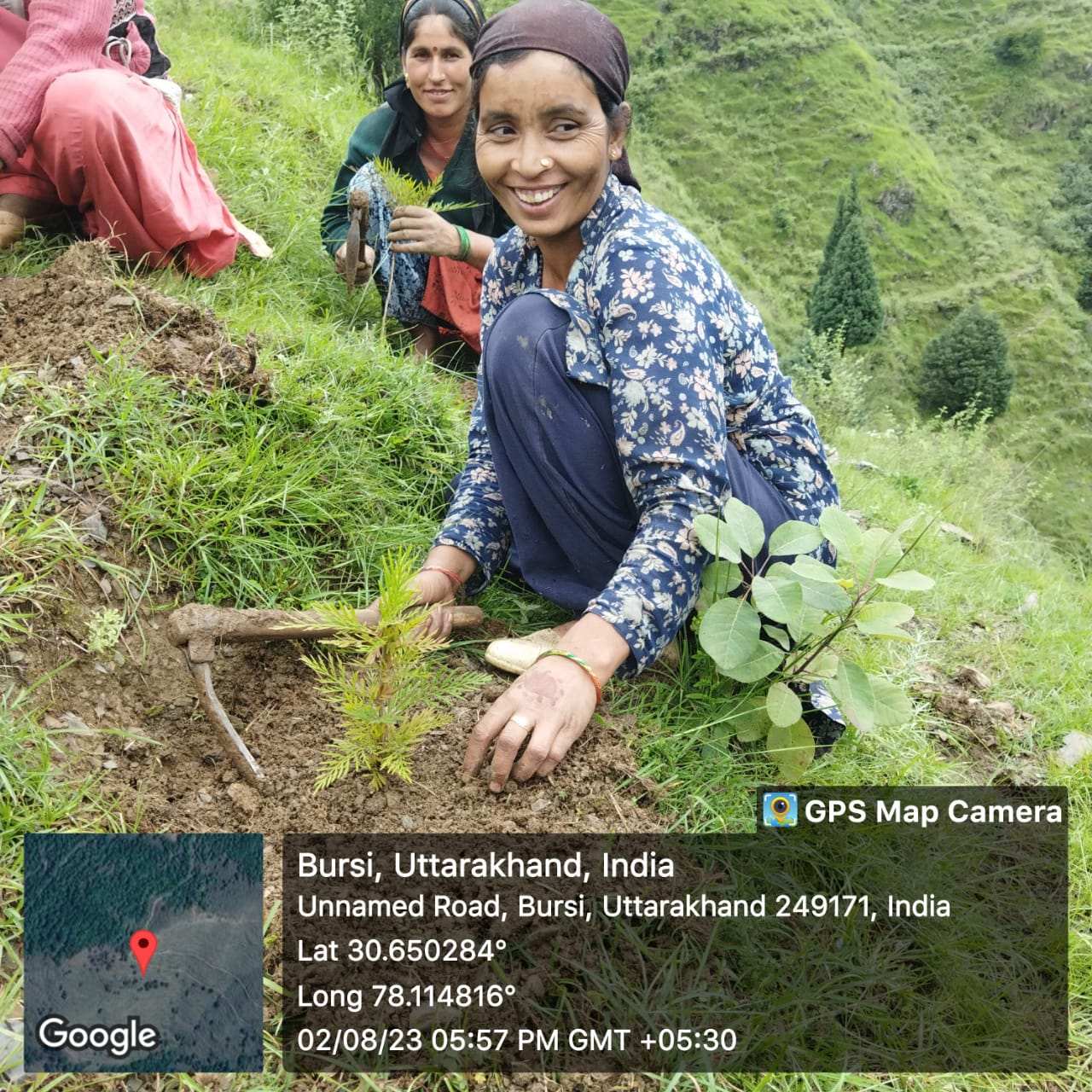
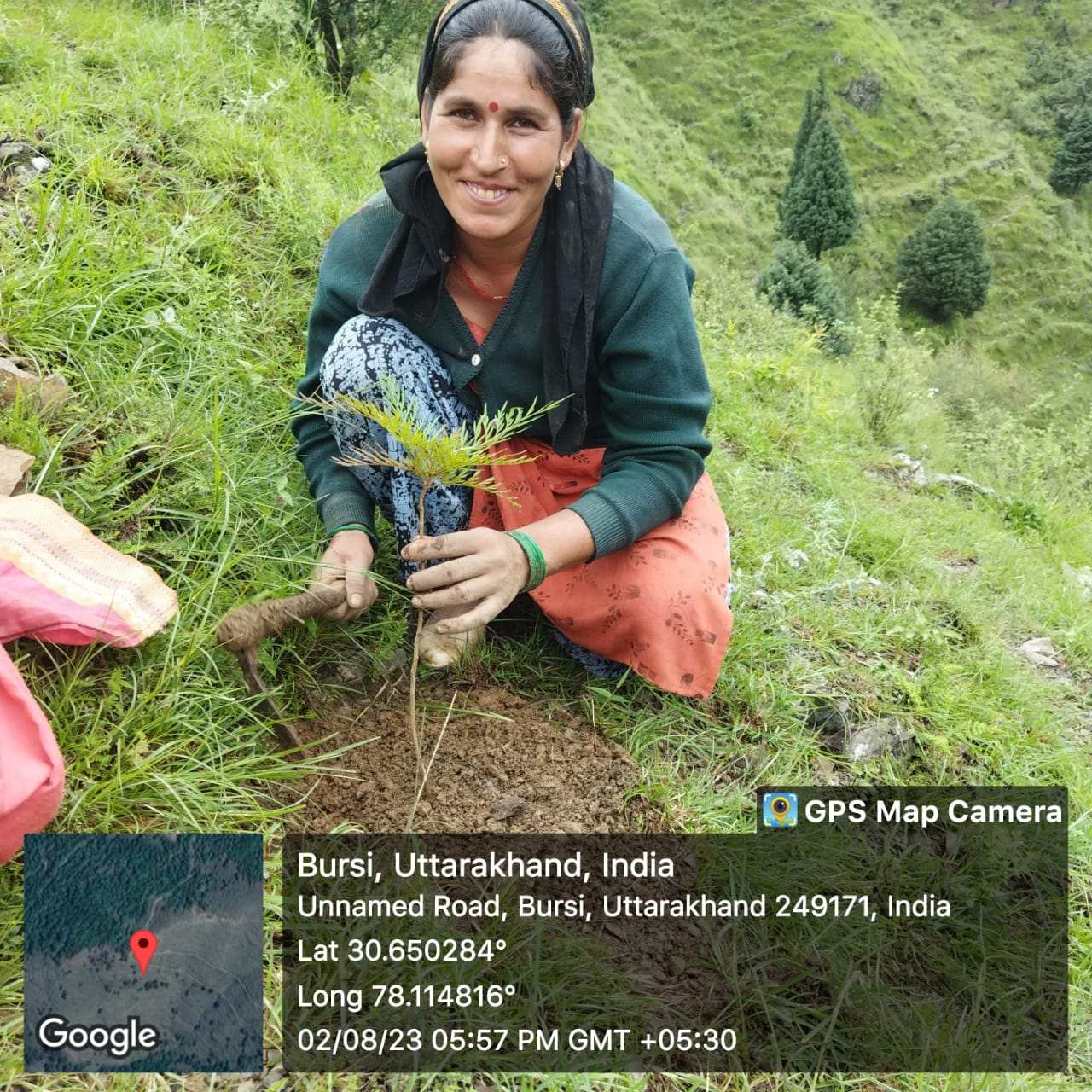
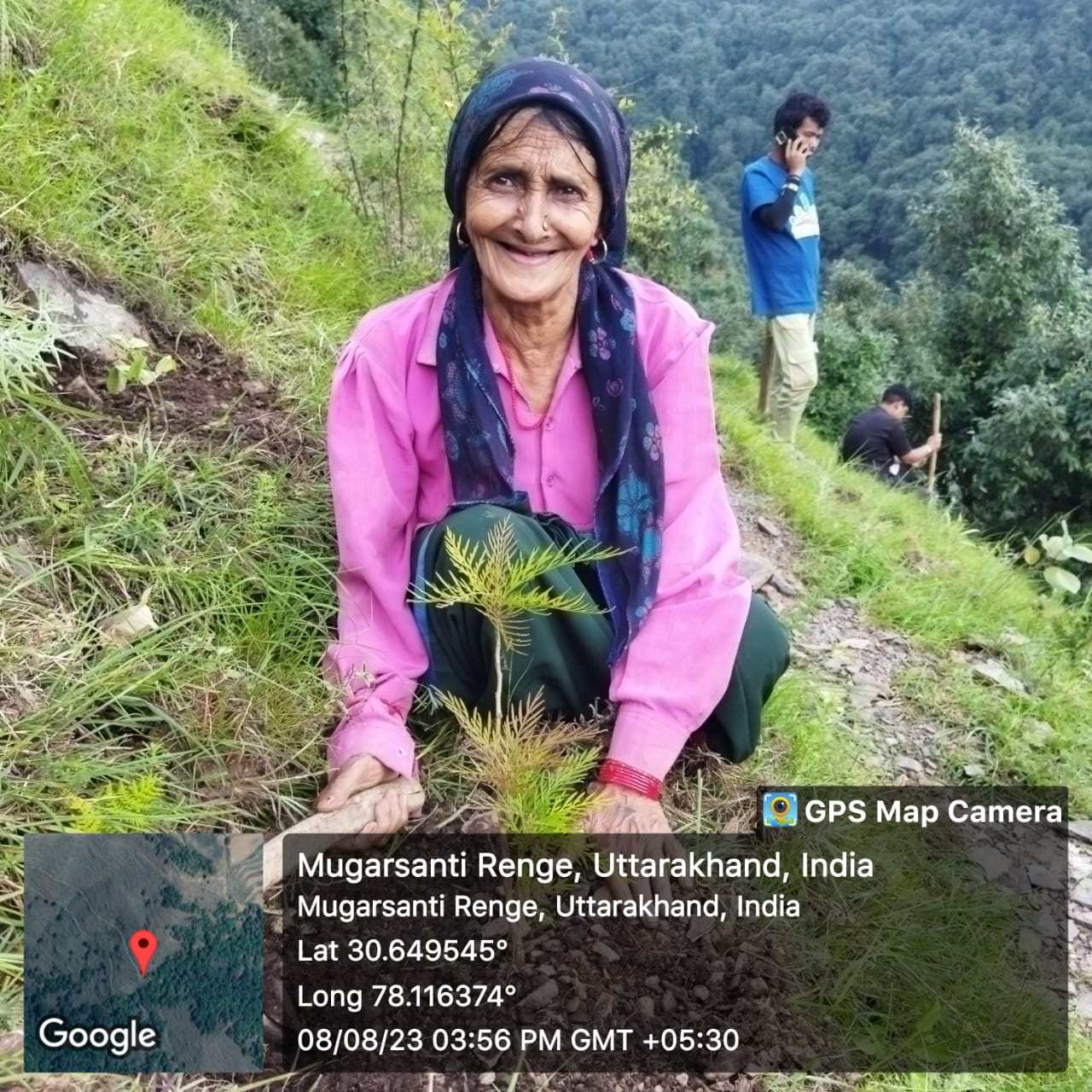
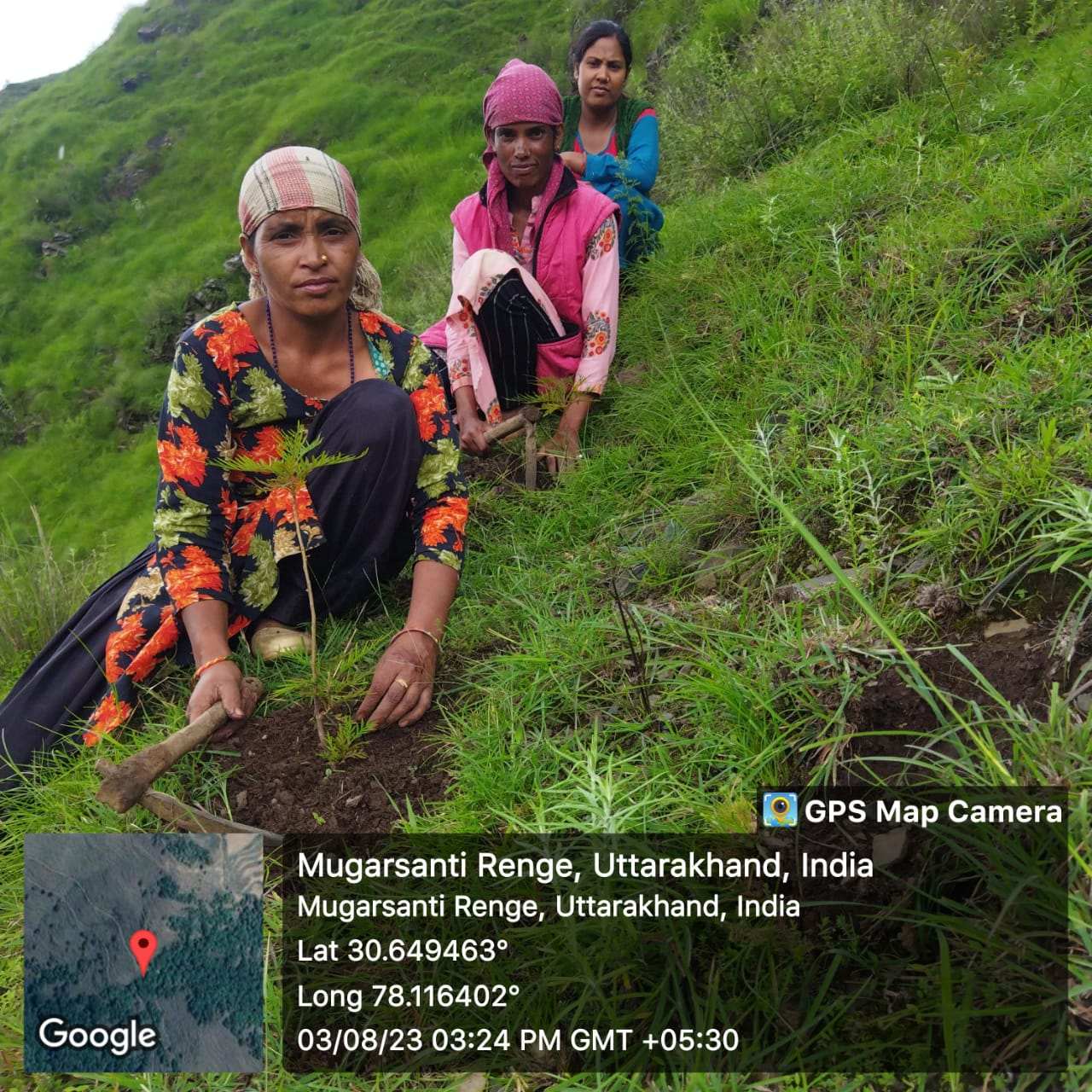
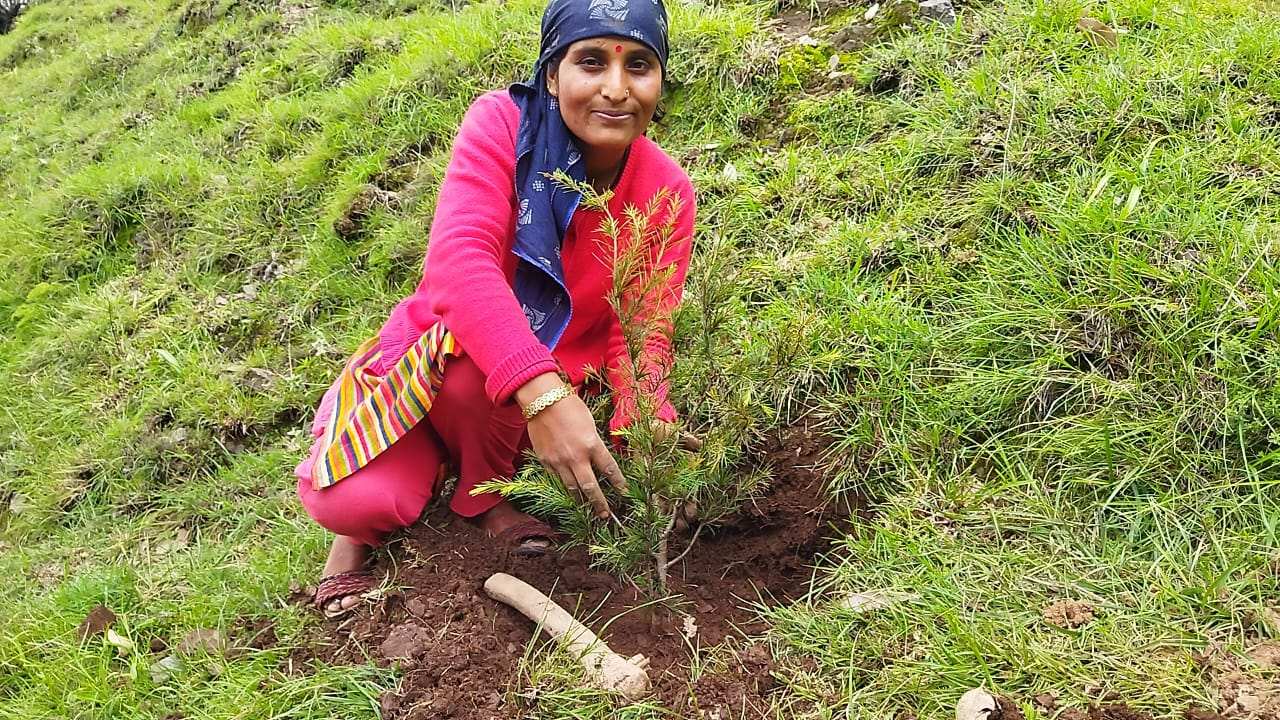
Project Target
0% Remaining
375,000
Trees Planted out of 375,000 Trees

Project Location:
The plantation project is implemented in Tiyan, Devalsari, Kandari, Sunara, Lodhan villages in Naugaun Block, Barkot Tehsil, Uttarkashi, Uttarakhand. GPS Coordinates: 30°44'49.1"N 78°08'11.5"E
Project Aim
SDG
Barkot, once a hidden gem of Uttarakhand, is now facing the harsh consequences of climate change. The area is facing multiple challenges - water scarcity, a loss of green cover and despite its high altitude of ~1220m, it is experiencing unusually warm temperatures. The combination of these factors have contributed to a decline in tourism which was a major source of income for the locals.
To help the local communities revive their economy, we have developed the Trees for EcoTourism™ project. In this project, we work closely with the locals to plant trees and implement sustainable practices that will benefit the environment and the local communities.
An article by the Times of India pointed out that Uttarakhand “which has over 70% forest land, has lost about 50,000 hectares of its forests to various developmental activities in the past 20 years.” The development comes at a heavy environmental price which is not sustainable for the local communities.
Ecotourism plays an important role in the economic growth of the region. According to FAO’s Edgar Kaeslin, Forestry Officer in Wildlife and Protected Area Management, “ Ecotourism has a far greater potential for contributing to income and livelihoods in poor rural communities than what is realized.”
Local tree species were the primary focus of the tree plantation drive in the area. The trees in this project include White Oak (Quercus alba), Himalayan Cedar (Cedrus deodara), Kachnar (Bauhinia variegata), Silver Oak (Grevillea robusta), Amla (Phyllanthus emblica), and Apricot (Prunus armeniaca).
Preserving and cultivating local species and carefully selecting the right trees is crucial in safeguarding the integrity of an exquisite ecosystem.
Planting trees offer numerous benefits that span across multiple aspects.*
Revive Biodiversity
To ensure that our efforts have a positive impact on the environment, we conduct a rigorous assessment of the site and carefully select the trees that align with the location and the community. Additionally, planting trees support the wildlife population.
Reduce Temperature
Trees do an excellent job absorbing carbon dioxide from the atmosphere and cooling the air. This will contribute significantly to boosting the local tourism industry.
Generating Employment
Our project generates employment opportunities for the local communities since we are committed to working closely with them.
Employment for Women
Tree plantation activities provide employment for women as many women workers participate in our projects.
Fodder for Livestock
Livestock is a major source of sustenance for the residents of Barkot. Planting trees will provide ample fodder to meet the needs of their livestock.
Recharge Groundwater
Groundwater recharge happens when water from rainfall and other sources soaks into the ground and refills underground water sources. This is important in making sure we have enough water for drinking, agriculture and other uses.
Trees play a crucial role in reducing water runoff. This not only prevents soil erosion but also helps to counter the water scarcity issue faced by the community in Barkot.
*The environmental benefits of the trees reach their full potential as they mature.
Social Impact of Growing Trees
Community Engagement
Tree planting initiatives often involve local communities, which can lead to greater community cohesion.
Ecological Education
Provides opportunities for community members, especially children, about the importance of environmental sustainability.
Urban Beautification
Trees contribute to the aesthetic enhancement of urban areas, making cities more pleasant and liveable.
Climate Resilience
By improving green cover, tree planting helps make communities more resilient against climate impacts like heatwaves.
Employment Creation
Planting trees creates employment for local community members like planting and maintenance, administrative roles, and more long-term jobs in management.
Wildlife Habitat
Trees provide critical habitats for various species of wildlife. Enhancing tree cover helps preserve biodiversity, which can be an ecological boon for local communities
Copyrights @ 2025 All rights reserved by Pangea EcoNetAssets Pvt Ltd.